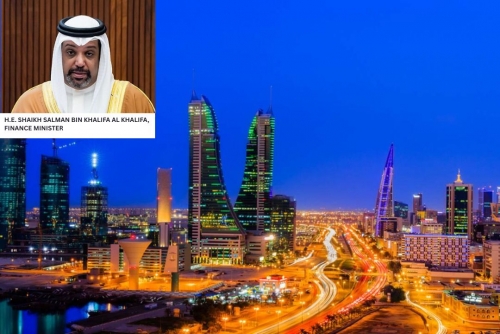Non-oil sectors reach 86% prosperity as Bahrain targets multinational tax revenue
TDT | Manama
Email: mail@newsofbahrain.com
Bahrain’s economy is now largely powered by its non-oil sectors, which make up 86 per cent of its total output, according to the Finance Minister, His Excellency Shaikh Salman bin Khalifa Al Khalifa.
Speaking during a parliamentary session yesterday, Shaikh Salman said this shift shows the country is no longer tied to oil in the way it once was, and that plans to widen income sources have been working.
He called on MPs to support new efforts to bring in revenue without leaning on ordinary people, especially those earning the least.
Push
A recent law that targets multinational firms with a base in Bahrain was described as part of this push.
The minister stressed the measure was written locally and was not the result of joining an international body.
Rather, it mirrors common rules developed in talks between 140 countries, in which Bahrain took part, but the decision to act was its own.
Warning
He warned that without such a law, profits made by multinationals in Bahrain could be taxed abroad instead, as most major economies already demand at least 15 per cent in corporate taxes.
The new rules, he added, were shaped to avoid affecting jobs, with the government consulting more than 100 of the world’s biggest companies operating in Bahrain before moving ahead.
As of now, 348 multinationals have registered under the new tax scheme, well above the 300 forecast.
Of those, 18 are Bahraini firms that meet the global definition of operating in more than one country and making over 750 million in annual turnover.
The law’s effect on the public purse should become clearer in 2025, with sharper figures expected the year after.
The National Bureau for Revenue was said to have had a major hand in preparing the rollout, helped by digital systems that handle both sign-ups and checks.
According to Shaikh Salman, Bahrain has the tools and knowhow to apply the rules properly, and tweaks may follow as lessons are learned.
Second
Yousif Abdulla Hamoud, the Ministry’s Undersecretary for Financial Affairs, told MPs that Bahrain placed second among Gulf countries in terms of economic growth, outpacing many larger economies.
He noted that some countries barely managed a half per cent rise, while Bahrain fared better. Hamoud also explained that loans taken by public institutions are not listed as part of the country’s debt, as they are paid off using the borrowers’ own income and backed by their assets.
All such requests, he said, are reviewed by the ministry before going ahead.
Related Posts

